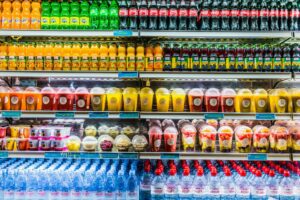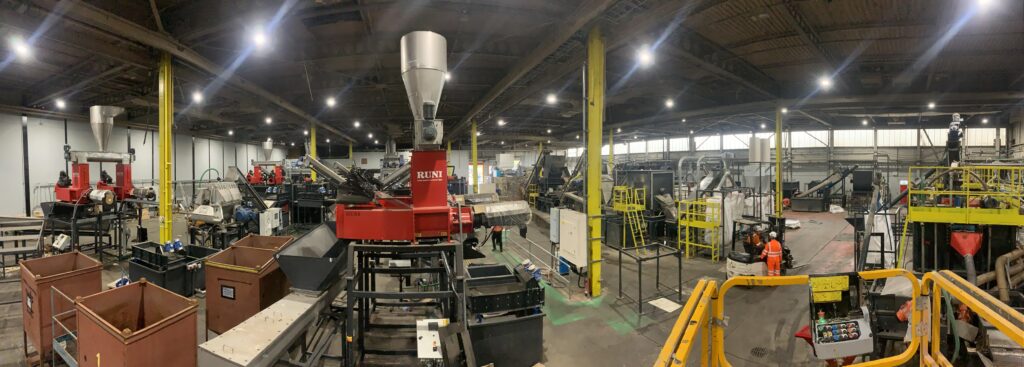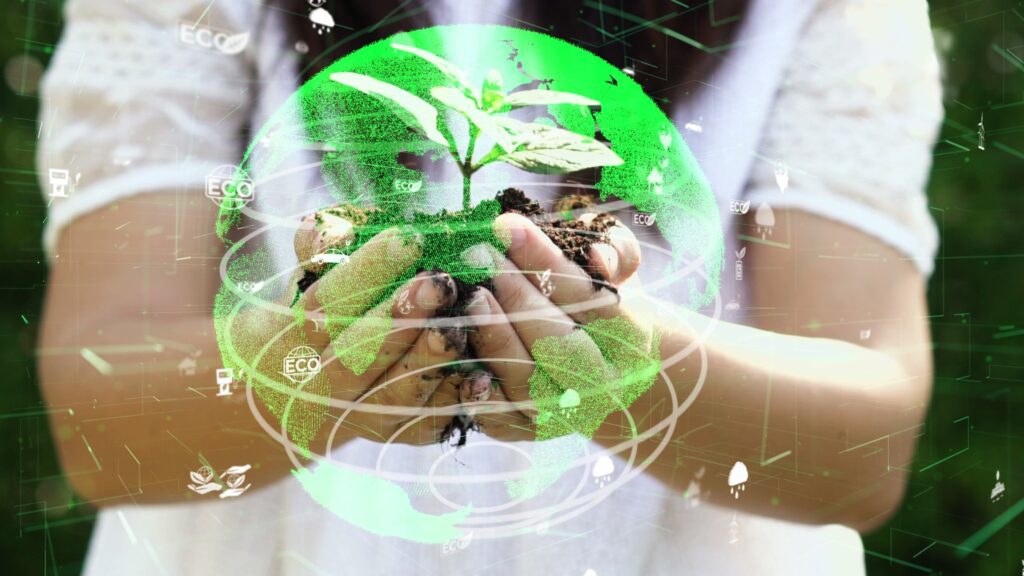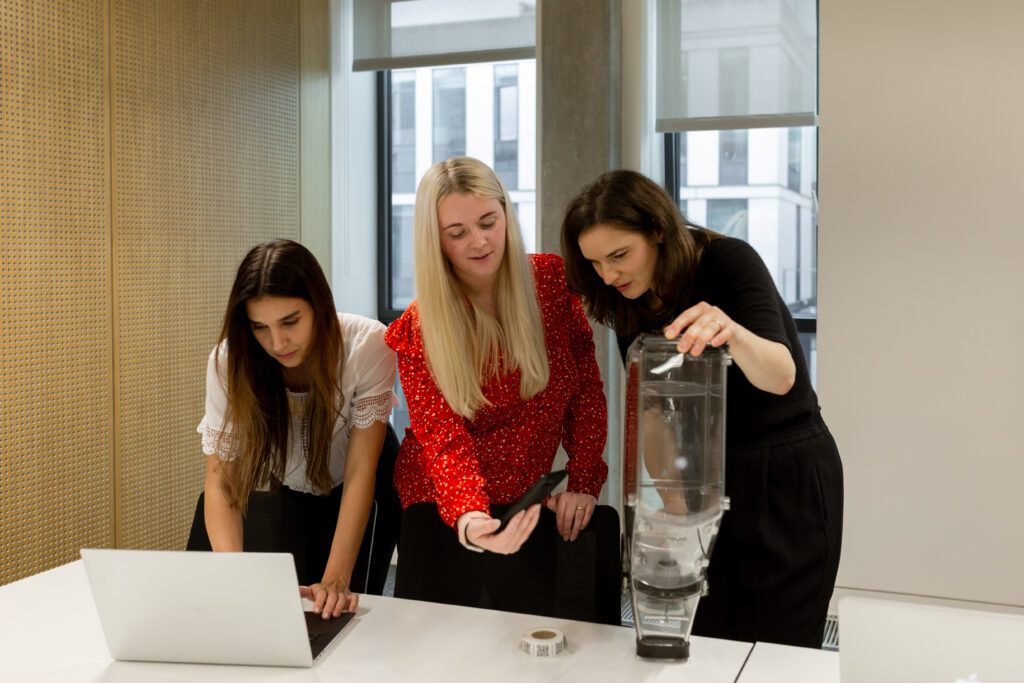A world-first solution to sort post-consumer mixed films and flexible plastic packaging waste to produce high purity materials that can be recycled back into new plastic packaging.
Films and flexible plastic packaging represent nearly a quarter of UK post-consumer plastic packaging waste, but estimates suggest that less than 10% is currently recycled and the remainder is sent to landfill or for incineration1. One of the reasons for this is that flexible packaging is made up of a combination of multi- and mono-layer plastics, which are challenging to separate for high quality recycling.
To address this, UKRI’s Smart Sustainable Plastic Packaging (SSPP) Challenge, delivered by Innovate UK, has provided funding to Impact Recycling to develop the innovative BOSS (Baffled Oscillation Separation System) 2D technology that can take mixed flexible plastic packaging waste and separate out the mono-layer polyethylene (PE) and polypropylene (PP) films from the multi-layer films. By separating the two waste streams to 95% purity, BOSS-2D can deliver high purity PE and PP material streams for recycling back into new plastic packaging.
The BOSS technology works by harnessing the fluid dynamics of water and using oscillation to create specific flow patterns that separate different polymers based on their relative density and drag characteristics. It exploits the fact that different polymers move through water differently, not unlike pebbles arranged on a beach by waves that push the lighter stones further ashore.
Game-changing technology
Impact Recycling initially developed the concept as the BOSS-3D technology, which separates mixed rigid plastic waste into polymers of different densities. BOSS-2D takes the technology further by specifically separating post-consumer mixed flexible plastic packaging and providing the market with the opportunity to increase the recycling of this difficult waste stream.
“BOSS-2D is a gamechanger for the recycling industry,” explains David Walsh CEO of Impact Recycling. “Its ability to mechanically separate films and flexibles to a high level of purity provides a world-first, scalable, drop-in solution to recycling this notoriously problematic waste stream.”
Vital support
The SSPP Challenge first supported the development of the BOSS-2D technology in 2020 through its Feasibility Studies for Demonstrators competition. The funding supported the development of the concept at pre-commercial scale and this pilot demonstrated that BOSS-2D technology could separate individual monolayer plastics at an unprecedented 95% purity.
“The key to recycling is producing a pure product that can be reused in as many different ways as possible. The level of purity that we can achieve with BOSS-2D technology means our recyclate can replace virgin feedstock in a range of products and contribute to government and corporate recycling targets.”
– David Walsh, CEO, Impact Recycling
Impact Recycling was then established to commercialise these positive results, and in 2021, it received further funding of £4.1 million as one of SSPP’s Large-Scale Demonstrator projects. This investment is enabling the company to develop a commercial-scale BOSS-2D demonstrator plant in North East England which is due to open in 2025. At full capacity, the plant will process 25,000 tonnes/year, over double the amount of plastic film collected for recycling in the UK in 2019.
Widespread benefits
The plant will benefit stakeholders across the plastics value chain. For example, by enabling high-quality separation and recycling of mono-layer films, it will help local authorities and waste management companies to meet the new UK government requirements for collecting and recycling post-consumer films and flexible plastics that are due to come into effect in the coming years.2
By supporting higher levels of recycling, the BOSS technology also helps to deliver carbon savings – the process significantly reduces CO₂ emissions compared to the manufacture of virgin plastic and all forms of disposal including landfill and incineration. The facility will also incorporate a water recirculation system to reduce water consumption and prevent microplastics entering the environment.
Exciting potential
In helping to prove the feasibility and scalability of the BOSS-2D process, SSPP has also provided confidence in the technology to other investors and in 2023 Impact Recycling received a £7 million loan from Nestlé UK & Ireland3 to help develop and scale up the process. The BOSS-2D technology is set to be critical to Nestlé’s goal of making more than 95% of its packaging recyclable or reusable by 20254 and will be similarly advantageous to other manufacturers and retailers. Impact Recycling also received support from the Ecosurety Exploration Fund in 20205.
“SSPP has been instrumental in helping us to verify the efficacy of BOSS-2D and prove that it could be scaled to process large quantities of plastic waste. As a start-up, you cannot always investigate promising avenues of research, even if you are confident in their potential. SSPP gave us the backing we needed to explore new ways of approaching the mixed flexible plastic packaging problem,” says David Walsh.
The BOSS-2D technology and commercial-scale plant represent a transformative step in recycling. By processing post-consumer mixed flexible plastic packaging and delivering high purity recyclate at scale, it has the potential to significantly reduce the amount of plastic waste sent to landfill and incineration, support circular economy goals, and pave the way for a more sustainable future in plastic waste management.
1 “Creating a circular economy for flexible plastic packaging,” The Waste and Resources Action Programme (2024) Creating a Circular Economy for Flexible Plastic Packaging, The Waste and Resources Action Programme
2 “Consistency in household and business recycling in England,” Department for Environment, Food & Rural Affairs (2023) Consistency in household and business recycling in England
3 “Nestlé invests £7m in pioneering recycling facility,” Nestlé UK & Ireland (2023) Nestlé invests £7m in pioneering recycling facility | Nestlé UK & Ireland
4 “Creating shared value and sustainability report,” Nestlé UK & Ireland (2023) Creating Shared Value and Sustainability Report
5 “Ecosurety Impact Projects,” Ecosurety (2024) Ecosurety Impact Projects







